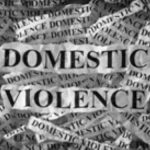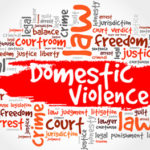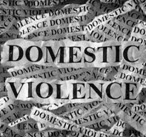Category Archives: Domestic Violence

Protective Order Basics in Virginia
Virginia, like most other states, has a comprehensive protective order law. Protective orders are extremely common in domestic violence cases. Typically, when they make domestic violence arrests, police officers must inform alleged victims of their right to request a civil protective order. Furthermore, protective orders are easier to enforce than assault, stalking, or other… Read More »

Dealing With Protective Orders in Loudoun County Courts
Once upon a time, fighting a protective order in Loudoun County was essentially a waste of time. Now, as the number of false or inflated complaints continues rising, judges scrutinize these matters more closely at the ex parte stage, and are more willing to hear both sides of the story during appeals. A Leesburg… Read More »

FAQs About Protective Orders in Loudoun County
When they make domestic violence arrests, most Northern Virginia law enforcement departments require officers to tell alleged victims about their right to seek a protective order. At this point, there’s little evidence of a crime, beyond the alleged victim’s statement. But that’s enough evidence to obtain a protective order, because the burden of proof… Read More »

Domestic Violence: Direct and Collateral Consequences
Frightening domestic violence statistics dominate the media. Here’s one statistic that’s frightening to defendants. Up to 35 percent of domestic violence claims are exaggerated or fabricated. Frequently, this exaggeration or fabrication is unintentional. We remember events selectively. Other times, the deception is intentional, mostly because the alleged victim wants an advantage in a parallel… Read More »

Why Do I Have to Go to Court Twice for Domestic Violence?
Virginia’s legal system has two layers of protection for domestic abuse victims because serious injuries are so frequent. 75 percent of these victims sustained a serious injury. That injury could be visible, like a broken bone, or invisible, like Post Traumatic Stress Disorder or another brain injury. On the flip side, there are no… Read More »

Exploring Virginia Laws Against Domestic Violence & Family Abuse
Under Virginia law, domestic violence is a broad term describing various criminal acts perpetrated against a family member or relative. Referred to legally as family abuse in Virginia, domestic violence requires the victim to be a family or household member of the perpetrator. Stated otherwise, domestic violence centers on the legal relationship between the… Read More »

Family Abuse Under Virginia Law
Family abuse is a legal term in Virginia for criminal acts involving family members or similar personal associates. Commonly referred to as domestic violence, family abuse occurs when a person abuses or threatens his or her own family members. Unlike other crimes, family abuse centers on the relationship between the perpetrator and victim. As… Read More »

What are the Different Types of Protection Orders in Virginia?
In order to protect victims of domestic violence and similar family abuse, Virginia law provides for three different types of protection orders. These orders help protect victims from future abuse in a number of ways, including legal prohibition of future contact and similar measures. There are generally three types of protection orders under Virginia… Read More »

How Does Virginia Deal With Domestic Violence?
Domestic violence is a broad term that encompasses many different types of violent crimes perpetrated against a family or household member. Referred to legally as family abuse under Virginia state law, domestic violence is different from many other criminal offenses. This is because domestic violence and family abuse require a specific and close relationship… Read More »

Domestic Violence Under Virginia Law
Domestic violence is a broad term that applies to criminal conduct against certain family and household members. Referred to legally as family abuse, there are many forms of domestic violence under Virginia law. That is because family abuse centers on the relationship between the perpetrator and the victim. Unless the perpetrator commits an offense… Read More »
